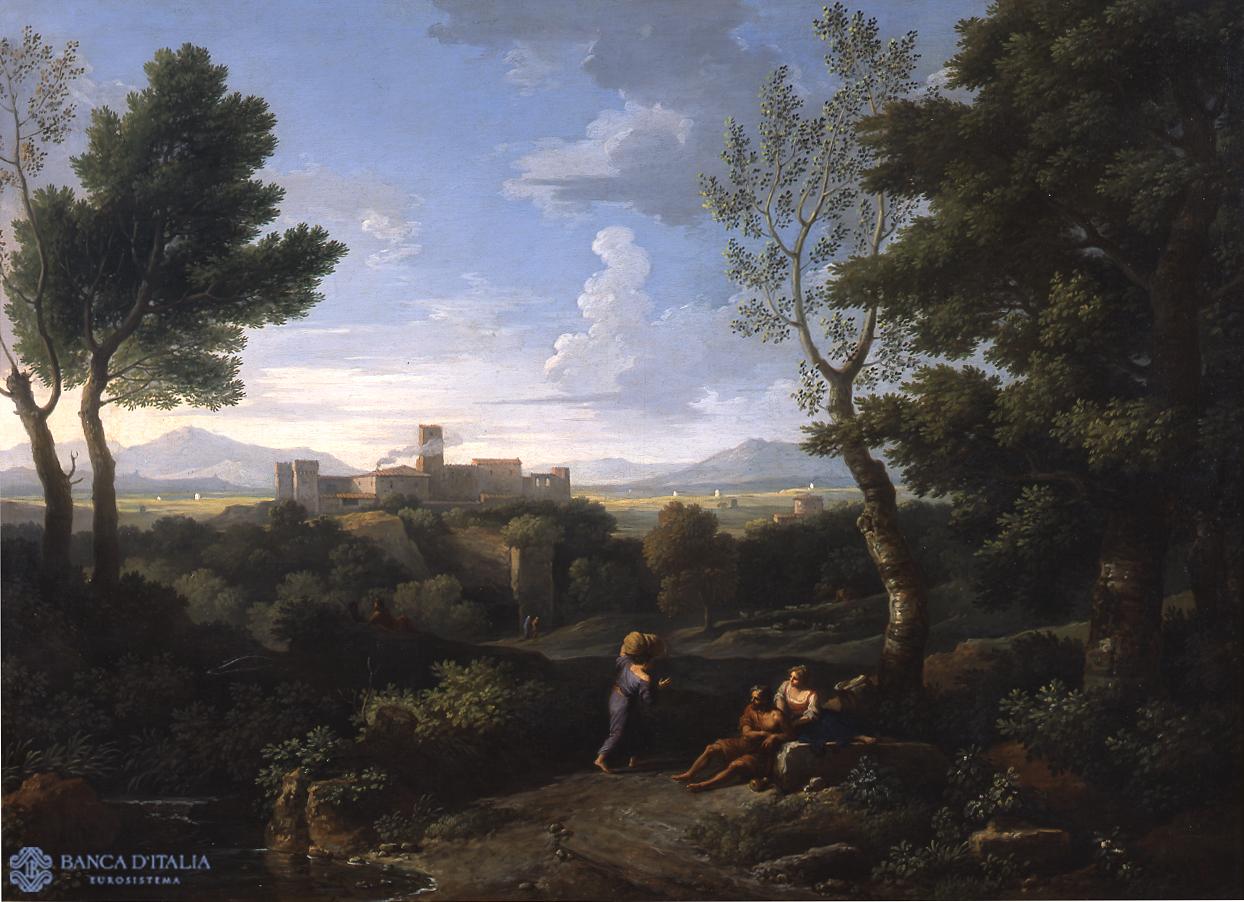In the centre of van Bloemen’s vast composition rise the many towers of the Castle of Lunghezza, at the gates of Rome, which the Barberini family acquired and renovated in the course of the seventeenth century. In the foreground, three figures can be seen at the side of a path set between a thicket and a winding stream. In the background, the hills surrounding the Roman countryside are visible.
The painting, once thought to have been lost, was probably done for the family of Pope Urban VIII as a record of one of his estates. It is among the most important of van Bloemen’s large-scale canvases, as is borne out by the excellent quality of the work and the very profitable collaboration with Placido Costanzi, who painted the small figures, working alongside ‘Orizzonte’ mainly in the 1640s. The three figures in the foreground probably represent the biblical characters Lot and his two daughters. In this narrative episode the artist achieves a seamless blending of sacred theme and natural landscape. From a comparison with his other works, most of which in private collections, the painting has been tentatively dated between 1730 and 1735, a period in which van Bloemen’s early training under the influence of Gaspard Dughet was still evident.
Jan Frans Van Bloemen, detto l’Orizzonte, Veduta del castello di Lunghezza
View of the Castle of Lunghezza
Painting
18th century AD
Landscape

Artist
Date
1730 - 1734
Material and technique
Oil on canvas
Measurements
98 x 137 cm
Compiler
Alessandro Zuccari
